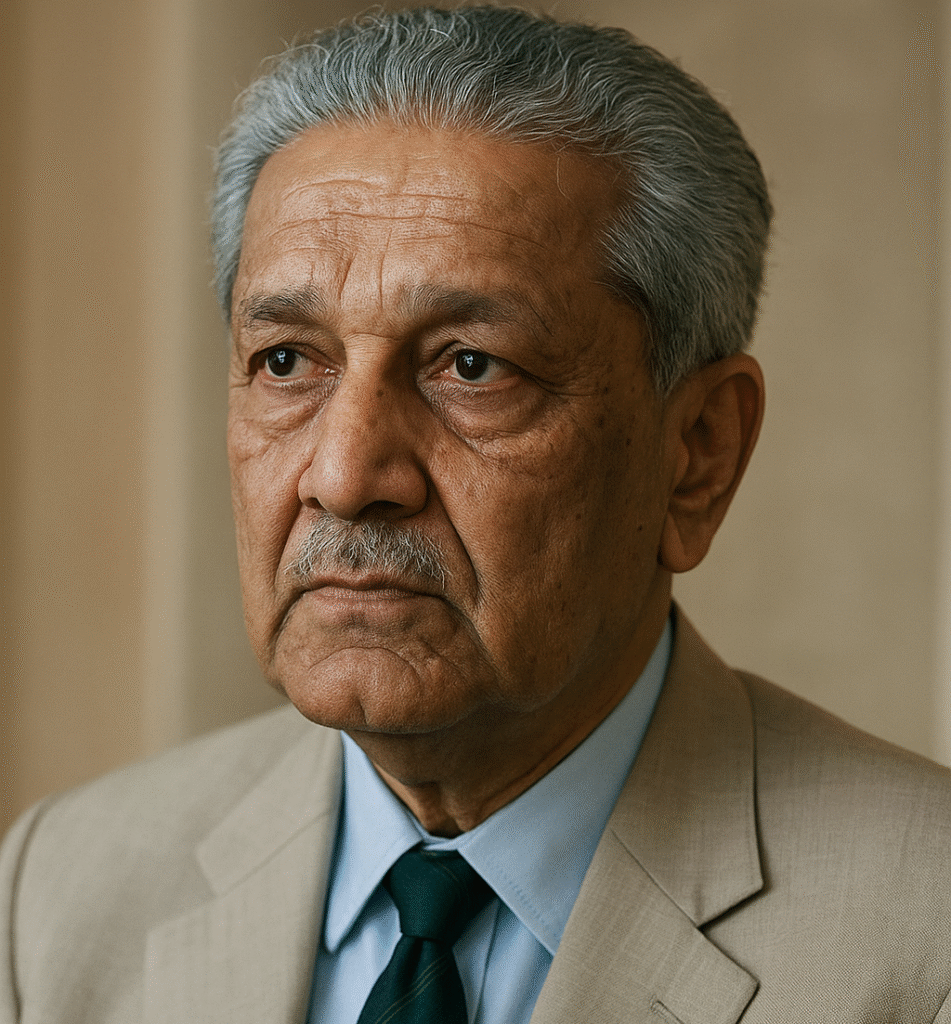From past to the present, it’s the ideas of great minds that have pushed science and new idea forward, and scientists played a vital role in laying the foundation for modern science. From cutting-edge discoveries in astronomy to pioneering work in medicine, their support continue to inspire to NewGenLearners. In today’s era, scientific careers are successful in Pakistan as well, with fields like computer science and forensic science gaining popularity.
This article will talk about the contribution of Muslim scientists in science, explore the famous scientists of Pakistan, and provide advice into the computer scientist salary in Pakistan and forensic scientist pay. If you are looking for a career in science or are curious about its history and opportunities, this guide is for you.
| Name | Field |
|---|---|
| Abdus Salam | Theoretical Physics |
| Abdul Qadeer Khan | Metallurgical Engineering |
| Pervez Hoodbhoy | Nuclear Physics |
| Samar Mubarakmand | Nuclear Physics |
| Nergis Mavalvala | Astrophysics |
| Ghulam Dastagir Alam | Theoretical Physics |
| Ghulam Murtaza | Theoretical Physics |
| Hakeem Muhammad Saeed | Medical Research |
| Haroon Ahmed | Electrical Engineering |
| Ishfaq Ahmad | Nuclear Physics |
| Iqbal Hussain Qureshi | Chemistry |
| Irfan Siddiqi | Physics |
| Ismat Beg | Mathematics |
| Javaid Laghari | Electrical Engineering |
| Javed Iqbal Kazi | Medical Research |
| M. A. B. Beg | Theoretical Physics |
| Muhammad Imran Qadir | Pharmaceutical Science |
| Muhammad Iqbal Choudhary | Organic Chemistry |
| Muhammad Masud Ahmad | Theoretical Physics |
| Muhammad Suhail Zubairy | Physics |
| Muhammad Yar Khohaver | Chemistry |
| Mujahid Kamran | Theoretical Physics |
| Mumtaz Ali Kazi | Chemistry |
| Muneer Ahmad Rashid | Applied Mathematics |
| Riaz-ud-Din | Theoretical Physics |
| Safdar Kiyani | Ecology |
| Salim Mehmud | Nuclear Science |
| Salim-uz-Zaman Siddiqui | Chemistry |
| Shahid Hussain Bokhari | Computer Systems Engineering |
| Shaukat Hameed Khan | Theoretical Physics |
| Sultan Bashiruddin Mahmood | Nuclear and Controls Engineering |
| Syed Tajammul Hussain | Chemistry and Nanotechnology |
| Sarfaraz K. Niazi | Biopharmaceuticals |
Contribution of Muslim Scientists in Science
The efforts of Muslim scientists in science spans centuries and has guided many branches of knowledge. During the Golden Age of Islam (8th to 14th century), scholars made significant developments that created the groundwork for modern science.
Key Contributions
- Astronomy: Al-Biruni accurately measured the Earth’s circumference and studied planetary movements.
- Mathematics: Al-Khwarizmi introduced algebra and contributed to algorithms, which are fundamental to computer science today.
- Medicine: Ibn Sina (Avicenna) wrote “The Canon of Medicine,” a standard medical text in Europe for centuries.
- Optics: Ibn al-Haytham’s work on light and vision is considered the foundation of modern optics.
- Chemistry: Jabir ibn Hayyan pioneered early chemical processes and laboratory techniques.
These contributions of Muslim scientists in science not only advanced their era but also paved the way for Renaissance discoveries.
Abdul Qadeer Khan

Abdul Qadeer Khan was a Pakistani nuclear scientist and metallurgical engineer widely regarded as the father of Pakistan’s nuclear program. Born on April 1, 1936, he played a pivotal role in developing Pakistan’s nuclear weapons capability, making the country a nuclear-armed state in 1998. Khan studied in Europe and gained expertise in uranium enrichment, which became the backbone of Pakistan’s nuclear technology.
Beyond his scientific achievements, Khan became a national hero in Pakistan for his efforts in strengthening the country’s defense. However, his legacy is complex due to controversies surrounding the proliferation of nuclear technology. Despite this, he remains one of the most influential figures in Pakistan’s scientific history.
The Impact of Muslim Scientists on Modern Science
The contribution of Muslim scientists in science is not limited to the past. Their discoveries are the backbone of many modern disciplines:
- Algebra and algorithms influence computer programming.
- Optics research led to camera technology and visual sciences.
- Medical texts informed the evolution of modern healthcare.
This legacy continues to inspire scientists worldwide, especially in countries like Pakistan, where the need for research and development is growing.
Why Scientific Careers Are Important in Pakistan
Pakistan is in a phase of technological and industrial growth, making scientific professions more crucial than ever. Careers like computer science and forensic science:
- Drive innovation.
- Create employment opportunities.
- Strengthen the economy.
- Contribute to security and justice.
With government initiatives supporting IT and science-based education, young scientists have better prospects than ever before.

Future Outlook for Scientists in Pakistan
The future for scientists in Pakistan is promising due to:
- Increased investment in IT infrastructure.
- Expansion of research institutes.
- Growing demand for cybersecurity, AI, and biotechnology.
- Government scholarships for higher education in science.
Students pursuing careers in computer science or forensic science can expect stable career growth and competitive salaries.
Final Thoughts
Muslim scientists laid the foundation for the modern world with their revolutionary discoveries. Today, Pakistani scientists continue this tradition by contributing to technology, medicine, and research. Whether you aim to become a computer scientist or explore the field of forensics, understanding salaries, opportunities, and the rich history of science can guide your journey.
The contribution of Muslim scientists in science, the legacy of famous scientists of Pakistan, and the attractive computer scientist salary in Pakistan reflect how science remains a driving force for progress.
Table of Contents
What is the contribution of Muslim scientists in science?
Muslim scientists have made remarkable contributions in fields such as mathematics, astronomy, medicine, and chemistry. Figures like Al-Biruni, Ibn Sina, and Al-Khwarizmi laid the foundations of algebra, medical studies, and astronomical research that shaped modern science.
Who are the most famous scientists of Pakistan?
Famous scientists of Pakistan include Dr. Abdus Salam (Nobel laureate in Physics), Dr. Atta-ur-Rahman (renowned chemist), and Dr. Abdul Qadeer Khan (nuclear scientist). Their research and innovations have significantly advanced Pakistan’s scientific reputation worldwide.
What is the computer scientist salary in Pakistan?
The average computer scientist salary in Pakistan ranges from PKR 60,000 to PKR 150,000 per month, depending on expertise, experience, and the industry. Senior professionals or those working in software development and AI can earn even higher salaries.
How much does a forensic scientist earn in Pakistan?
Forensic scientist pay in Pakistan usually starts around PKR 40,000 to PKR 80,000 per month at entry level. Experienced forensic scientists working with law enforcement or private labs may earn above PKR 120,000 monthly.
Why are the contributions of Muslim scientists important today?
The contribution of Muslim scientists in science remains important because their discoveries formed the basis of modern innovations. From algebra to optics, their work is still used in education, research, and technological advancements.
What fields do Muslim scientists contribute to the most?
Historically, Muslim scientists contributed to medicine, mathematics, astronomy, engineering, and chemistry. Today, their influence is visible in fields like biotechnology, computer science, and environmental sciences.


Pingback: Understanding Client and Server: Best Guide to Client-Server Model, Systems, and Examples 2025 - newgenlearners.site
Pingback: AI Yearbook Photos: Best Transforming Memories with Tech 2025 - newgenlearners.site